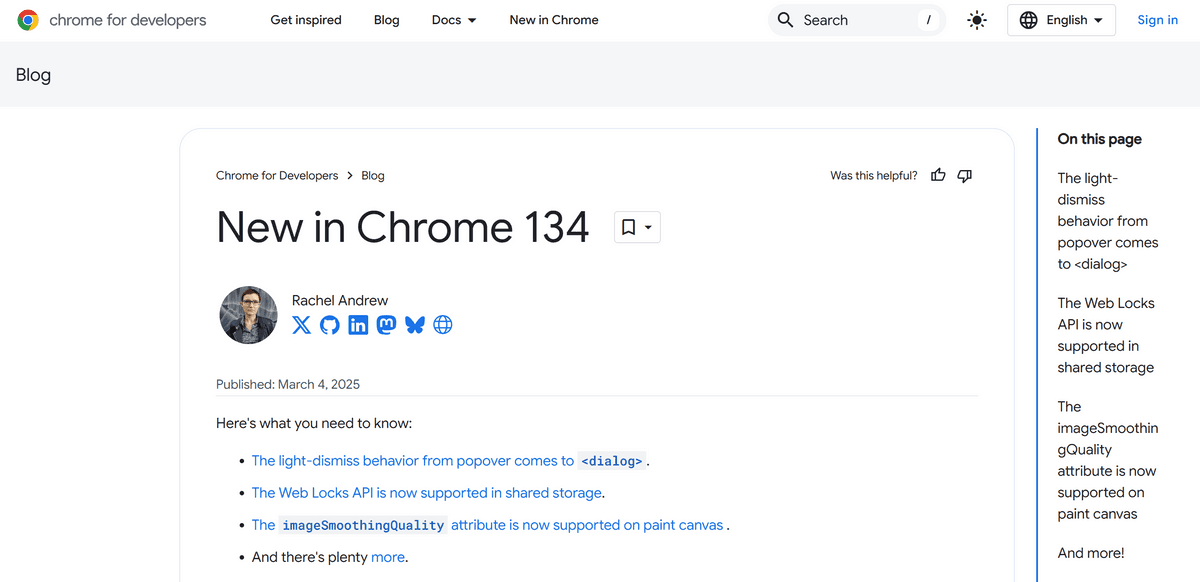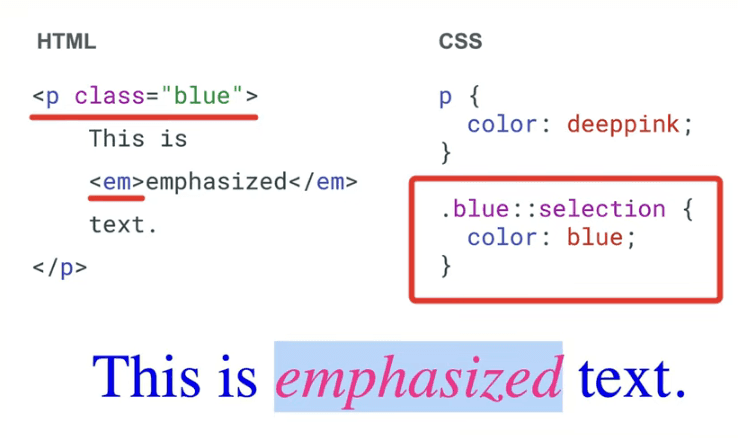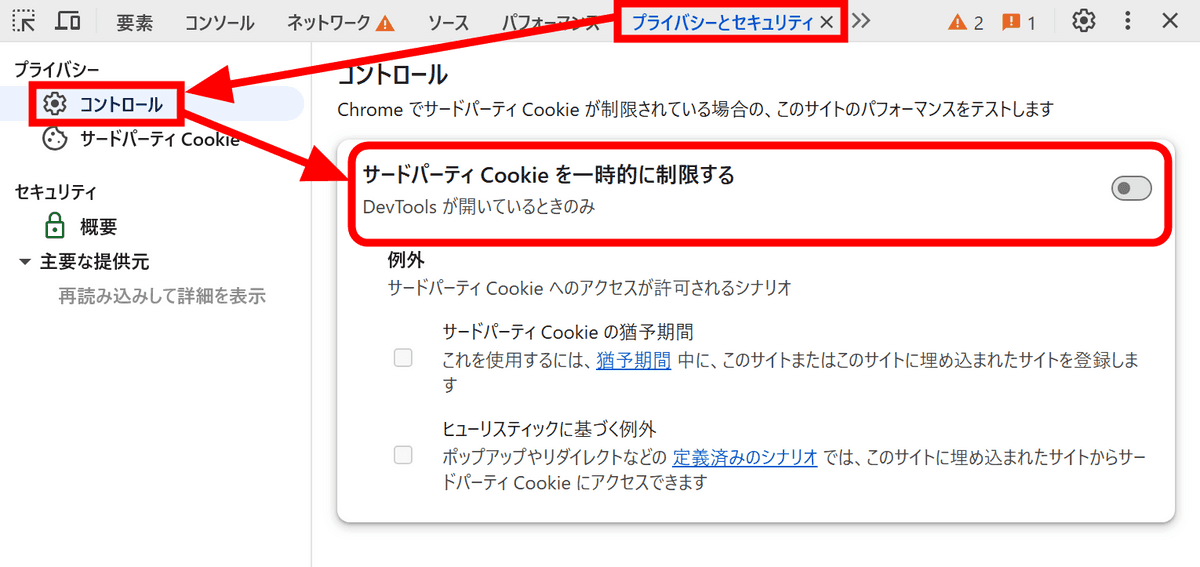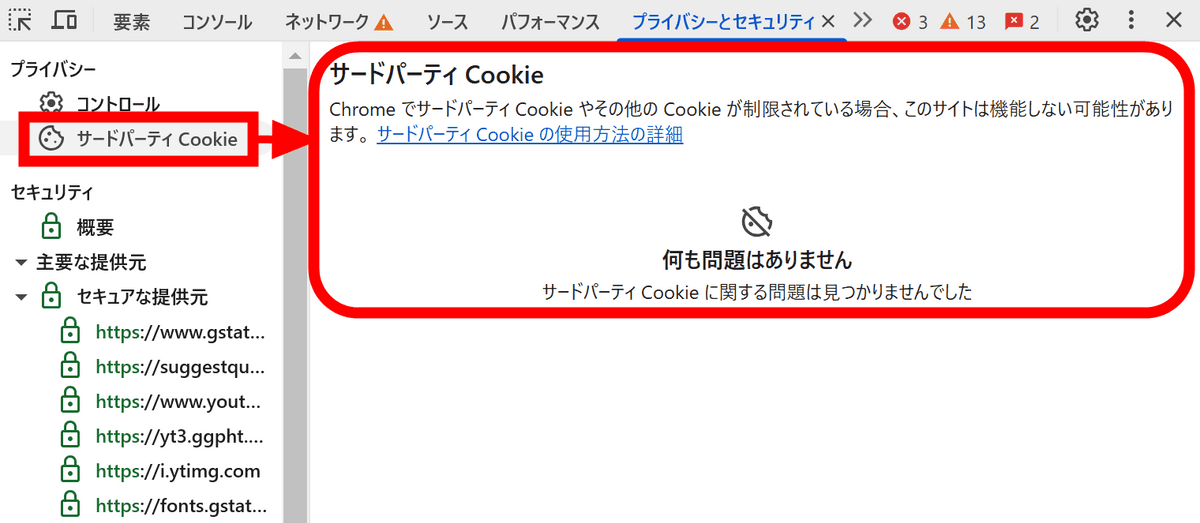'Google Chrome 134' stable release, developer tools make it easier to find problems with third-party cookies

The latest stable version of the web browser ' Google Chrome ', version 134, has been released. It allows you to customize how dialog elements are closed, introduces a lock to Shared Storage, and makes it easier to check third-party cookie issues with the developer tools.
Chrome 134 | Release notes | Chrome for Developers
https://developer.chrome.com/release-notes/134
New in Chrome 134 | Blog | Chrome for Developers
https://developer.chrome.com/blog/new-in-chrome-134

◆You can now specify how to close a dialog element
The 'closedby' attribute has been added to
the dialog
element, which can display alerts and subwindows. If you set the closedby attribute to 'closerequest', the dialog will be closed by triggers such as the 'Esc' key or the Android 'Back' button.In addition, by setting the closedby attribute to 'any', in addition to the above triggers, it is now possible to perform popover -like behavior such as 'automatically closing the dialog when clicking outside it'. If you don't want to automate the closing action, just set it to 'none'.
◆CSS highlight settings are now inherited
By setting the ' ::selection ' pseudo element in CSS, you can customize the appearance of selected text. Previously, there was an issue where the '::selection' settings were not inherited, and the '::selection' settings of the parent element were not applied when a child element was selected. For example, in the example below, 'emphasized' enclosed in em tags is selected, but the CSS settings are not reflected.

Starting with Chrome 134, the '::selection' setting is inherited by child elements, resulting in a more natural behavior.

CSS highlight inheritance was introduced in Chrome 131, but the rollout was halted due to compatibility issues. The issue was fixed, so the feature was reintroduced in Chrome 134.
◆
Web Locks API
now available for Shared StorageAmong the browser's data storage features, Shared Storage is characterized by the fact that the same data can be accessed by multiple sites. Due to its structure, data conflicts can occur when writing or reading from multiple sites at the same time.
Chrome 134 introduces the Web Locks API to Shared Storage, allowing for exclusive control, as well as a batch processing mechanism for making multiple changes atomically .
◆ You can now check for third-party cookie issues in developer tools
Although Google has retracted its plans to deprecate third-party cookies , a mechanism has been introduced in the developer tools that allows you to verify whether a site works correctly when users have set their browser to block third-party cookies. You can temporarily restrict third-party cookies in the 'Control' tab of the 'Privacy and Security' panel of the developer tools.

The 'Third Party Cookies' tab shows you issues with third-party cookies found on your site.

◆Other updates
- 'imageSmoothingQuality' attribute added to PaintCanvas
You can now adjust the balance between quality and performance when scaling images.
Google Chrome 134 also includes
14 security bug fixes
.The next stable version, Google Chrome 135, is scheduled to be released on April 1, 2025 local time.
Related Posts:
in Software, Posted by log1d_ts







